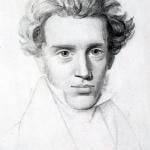Behind much of today’s biotechnology is the (Newtonian?) notion that living organisms are machine-like. And living organisms can look like machines in some respects. But they aren’t. Barbara Adam points out that the cells of our bodies are incessantly self-renewing – our limbs aren’t like gears that stay the same over time. Nor do the regularities of living organism meet the mechanical ideal of invariant repetition. Living organisms constantly balance decay and renewal, so that their stability is “fundamentally dynamic.”... Read more
















